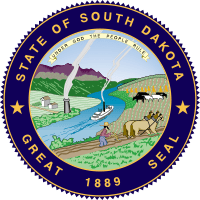 While interlock installation is not mandatory for drunk driving offenders in North Dakota, the state has managed to keep drunk driving-related fatalities relatively low through the use of felony DUIs and a 24/7 Sobriety Program, which may include interlock installation. As a result, the state had only 33 drunk driving-related fatalities in 2011, making up 29% of total traffic deaths that year. However, the state saw an 11% increase in drunk driving-related traffic fatalities from the year before. Hopefully, the use of interlocks as part of the 24/7 Sobriety Program has helped to decrease drunk driving. The state could save even more lives by requiring interlocks for all offenders.
While interlock installation is not mandatory for drunk driving offenders in North Dakota, the state has managed to keep drunk driving-related fatalities relatively low through the use of felony DUIs and a 24/7 Sobriety Program, which may include interlock installation. As a result, the state had only 33 drunk driving-related fatalities in 2011, making up 29% of total traffic deaths that year. However, the state saw an 11% increase in drunk driving-related traffic fatalities from the year before. Hopefully, the use of interlocks as part of the 24/7 Sobriety Program has helped to decrease drunk driving. The state could save even more lives by requiring interlocks for all offenders.
DUI Laws
Anyone who operates a vehicle with a blood alcohol concentration (BAC) of 0.08 or higher is charged with driving under the influence (DUI). First and second offenses are misdemeanors while third and subsequent offenses are felonies. Consequences include a fine, jail time, and driver’s license suspension.
- 1st Offense: up to $1,000 fine; up to 1 year in jail; 30-day to 1-year license suspension; alcohol dependency evaluation
- 2nd Offense: up to $1,000 fine; up to 1 year in jail; 1-year license suspension
- 3rd Offense: up to $2,000 fine; up to 2 years in jail; 1-year license suspension
- 4th Offense: 2-year license suspension
- 5th and Subsequent Offenses: 3-year license suspension
Repeat offenders and any offender with a BAC of 0.17 or higher must participate in the state’s 24/7 Sobriety Program, which requires offenders to be tested twice every day and/or 24/7 through a drug patch or electronic alcohol monitoring device.
Offenders may be allowed to drive to work, 24/7 sobriety testing, school, and/or counseling programs during the license suspension period if they successfully complete a court-approved chemical dependency counseling program.
Ignition Interlock Laws
Ignition interlocks are not mandatory for convicted drunk drivers in South Dakota. However, the court may order a convicted drunk driving offender to install the device as part of their participation in the 24/7 Sobriety Program.
